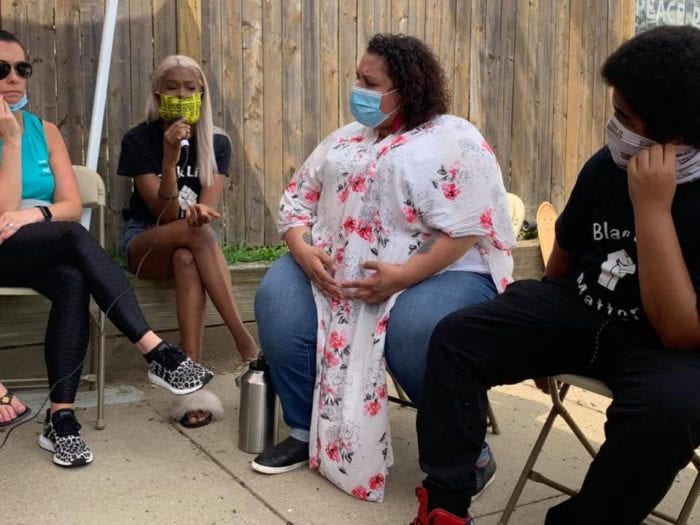
“This happens quite often, especially on controversial issues, so then the state doesn’t even have to deal with it.”
Amidst what’s shaping up to be a huge turnout of voters for the 2020 election, at least one whole demographic won’t be casting ballots: noncitizens of the United States.
Contrary to popular belief, however, it’s possible and even legal to change this reality—at least for state and local elections.
Despite laws that spell out how noncitizens can actually vote, in Massachusetts, the state constitution makes it notably difficult—even with flexible “home rule” options that give cities and towns a good deal of freedom and discretion.
While voting is frequently considered an exclusive right of US citizens, it wasn’t until the Illegal Immigration Reform and Immigrant Responsibility Act (IIRAIRA) of 1996 that the practice was made illegal in federal elections. Still, the measure doesn’t apply to the states.
In Cambridge, a 2003 policy order shows that the concept has been considered in that city for nearly two decades, though it has yet to materialize. In nearby Chelsea, last year City Councilwoman Damali Vidot introduced a measure that would legalize noncitizen voting there; she describes the idea as “a game-changer in communities of color.”
“There’s an electorate that exists in Chelsea that is not being stimulated, not being catered to,” Vidot said in a phone interview. The councilor believes the city council should “expand the voting privilege to all our residents,” specifically immigrants who pay taxes.
Not all Chelsea councilors agree, with enough of them opposed to shut down the proposal. Councilman Leo Robinson voted against it and told the Dig, “Being an African American, it took me a long time to get to the point where I could vote, and just kind of handing some people the right to vote without paying any dues to the city … I just think it was kind of unfair to other minority groups.”
Chelsea’s not alone in attempting to give voting rights to noncitizens. Discussions gained steam in the ’90s, with Chelsea, Somerville, and Amherst leading the charge. To date, Brookline, Amherst, Cambridge, Newton, Northampton, and Wayland have advanced motions, some as recently as 2019, with Boston and Somerville formally discussing the topic among council members without introducing legislation.
Even in towns or cities where such a motion is passed, noncitizens may still not be able to vote. Rick Su, a University of North Carolina law professor and former Mass resident, explained that policies like this are often nixed by the state and are difficult to implement.
“Although Massachusetts cities have home rule, which should mean theoretically that they have much more extensive powers without state authorization, the state constitution also prevents localities from regulating elections,” Su said in a phone interview. “So if this is considered to be a regulation of elections, then the state would have to sign off on it. The locality cannot do it by themselves.”
To date, municipalities that have attempted to expand voting have been stopped by state lawmakers. It’s a snag that’s held up Mass cities and towns for almost 30 years. As Su said, “Even if Chelsea approves [noncitizen voting] and goes forward with it,” it could just die on Beacon Hill. “This happens quite often, especially on controversial issues, so then the state doesn’t even have to deal with it.”
That’s not to say the Commonwealth hasn’t considered the issue. About a month before Vidot introduced the idea in Chelsea, state legislators heard a comparable pitch. Last year, Cambridge state Rep. David Rogers petitioned for An Act Enabling Cities and Towns to Extend Voting Rights in Municipal Elections to Certain Noncitizens of the Commonwealth. That bill was effectively crushed (lawmakers technically ordered a study), but it was nonetheless rare progress on this front.
Cristina Rodríguez, a law professor at New York University, published a study in 2010 that clarified the legality of “alien suffrage,” but also added that most communities have been reluctant to implement it, noting Mass specifically. “The complication,” Su wrote, “comes with the relationship of the city and the state.”
Su has consulted for the Harvard Immigration and Refugee Clinical program, which in 2017 authored a letter to the Cambridge City Council, which was considering a similar policy for noncitizens. It reads in part: “Implementing noncitizen voting rights will help make our community stronger by encouraging civic education and participation and by recognizing the multi-fold contributions of immigrants to our community, from paying taxes to serving in the U.S. military.”
Annie Bennett is a student at Emerson College and freelances as a reporter. She is majoring in Journalism and minoring in Peace and Social Justice & Comedy: Writing and Performance. She reports primarily on politics and social justice issues. When not working, she can be found playing Mario Kart, sleeping, or on the quidditch pitch with her teammates from Emerson!

